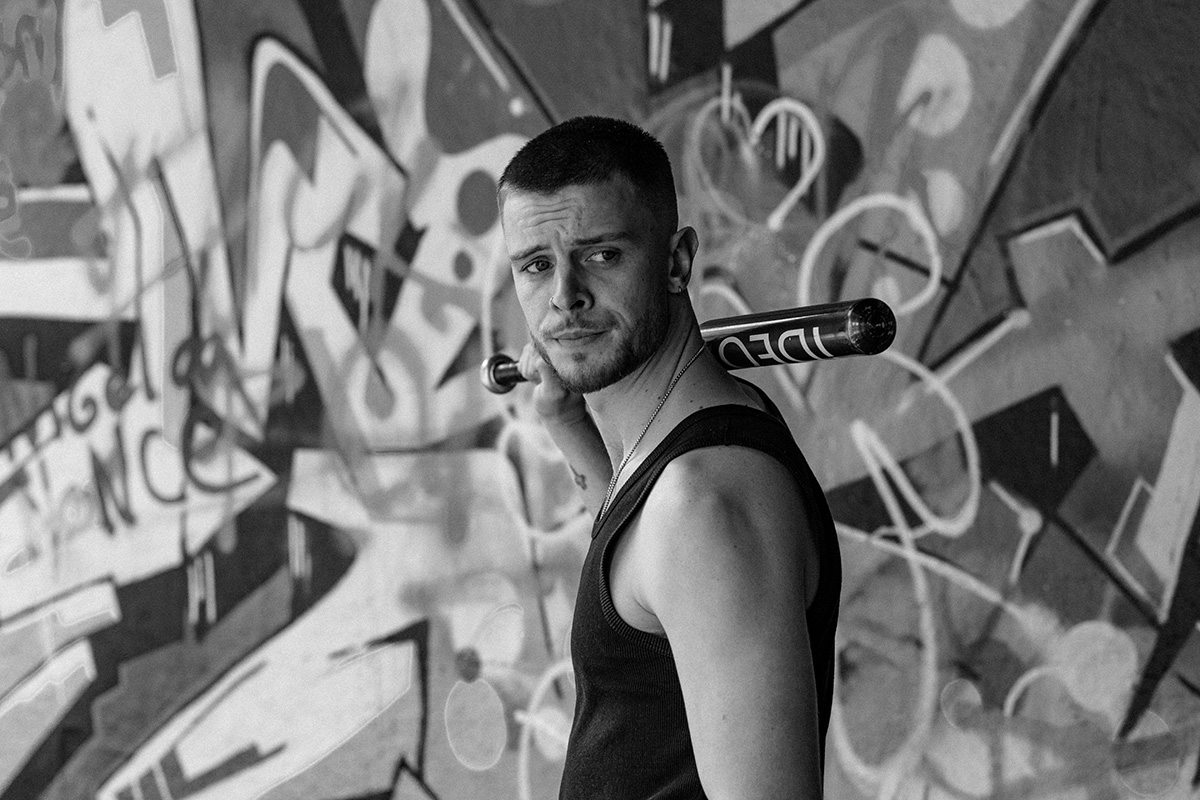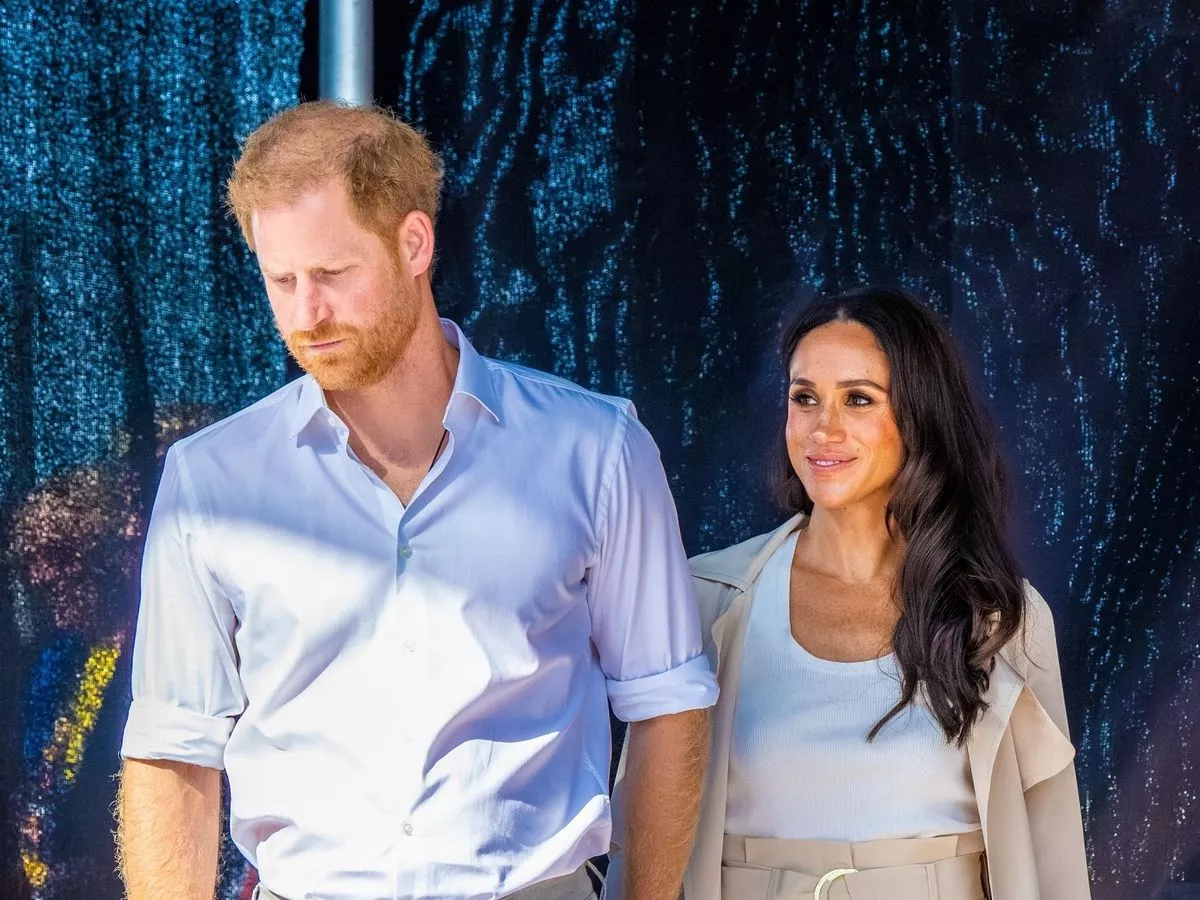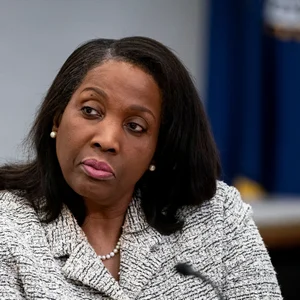By Kerry Reid
Copyright chicagoreader

The chance meeting behind the story of how Cameron Raasdal-Munro’s first play traveled from the UK to its U.S. premiere at the tiny Open Space Arts in Uptown sounds like something out of a screenplay. But then, so does the raw and twisted plot of Gangsta Baby—even though it draws quite a bit from the 26-year-old author’s own life.
Raasdal-Munro was working as a host at a restaurant in London’s Soho neighborhood right before the run of Gangsta Baby at the Hope Theatre in January 2024. One night, Chicago writer and producer G. Riley Mills (who goes by Gary informally) came into the restaurant.
“He was very American and was very friendly and said, ‘Hey, how you doing?ʼ” recalls Raasdal-Munro. “And I was like, ‘I’m great.’ And I was a bit too honest ’cause I was a bit excited. I went, ‘I’ve just written my first play and it’s gonna premiere in London in January.’ And he went, ‘Holy moly, I’m a playwright too.’ He was like, ‘What’s the play about?’ And then he went, ‘Who are you? No, tell me about you. Tell me who you are.’ So I kind of went through my life story—who I am, where I come from, all of this different stuff, and my experiences. And he went, ‘Man, that’s an amazing story. So what’s the play about?’ And I went, ‘Well, I just told you.ʼ”
Gangsta BabyThrough 10/5: Fri-Sat 7:30 PM, Sun 2 PM; Open Space Arts, 1411 W. Wilson, openspacearts.org, $30 ($25 students/seniors)
In Gangsta Baby, Raasdal-Munro plays Junior, a queer sex worker in the English seaside town of Hastings who is dealing with generational trauma embodied by his mobster father, Senior, whose own preference for men doesn’t stop him from abusing Junior and Junior’s trans half-brother, Pete, who is a street artist in Hastings. Director Rikki Beadle-Blair, who has been with the play since its first reading, also helms the Open Space Arts production.
After their encounter, Mills asked Raasdal-Munro to send him the script. “He got back to me the next day. We met up and he kind of chatted through, helped me with talking about how to do a production and talking about doing your first play. He was very supportive and very kind. And then he came on as a producer. We did it in London. We did very well. And I came out [to Chicago] for Thanksgiving [2024] and Gary was like, ‘Let’s just do a reading at Facility Theatre.ʼ”
Open Space director David Zak was at the reading, and Raasdal-Munro and Beadle-Blair both decided that the prospect of remounting the show in such an intimate setting (the basement theater seats less than 30 patrons) was tempting. It also provided an opportunity to rework some of the script.Beadle-Blair, 64, has long been a champion of new queer voices onstage and onscreen in the UK, and runs the multimedia production company Team Angelica. He met Raasdal-Munro through the young artist’s former drama school in London.“I mentor a lot of artists, so I was doing a whole kick-up-the-backside kind of workshop and making them all do something towards their ambitions before they left the room,” says Beadle-Blair. “And Cameron attended, and he had a play he’d written.” Beadle-Blair told Raasdal-Munro to get a group of actors together the next day for a reading. After some stops and starts, Gangsta Baby began to take shape. “I often tell people they should write the story that only they could tell,” says Beadle-Blair. “That doesn’t mean it has to be autobiographical. Just maybe a passion. Maybe you’ve been obsessed with Marilyn Monroe and know so much about her. You can write something that other people have missed.”
Gangsta Baby is about undeniably violent events, and Junior brings the audience into his story from the first moments, talking to them as if they are potential tricks. Mitch, one of Junior’s clients, becomes involved in the struggle between Junior and Senior, engaging in class-based role-playing with Junior. But there is also tenderness, particularly in the scenes between Pete and Junior. (Chicago actors Josh Odor, Bryan Nicholas Carter, and Jensen Knudsen play Senior, Mitch, and Pete.)
Raasdal-Munro says, “As human beings, we are really deeply complex. I am a very proudly queer writer, so I love writing queer stories. But there’s so much within a person’s life that being queer will conflict with and sometimes harmonize with. So for me, it was bringing everything to the forefront—whether it’s about class, whether it’s about sex work, whether it’s about addiction, or queerness—and how they all coincide and how they all collide. And also just how difficult it is to be a parent, how difficult it is to be offspring.”
Though the script is going through some changes for its U.S. premiere, one thing that both writer and director have resisted is the temptation to make it any less British in its references and locutions. Says Beadle-Blair, “We wanted to really communicate with but not patronize the American audience. We wanted to connect with them and give them opportunities to learn new phrases and new slang, but in ways that they can take in rather than feel alienated by.”
“I always try and write for one specific audience member as truthfully as I can and as authentically as I can, as honestly as I can. Because then it will connect to everybody,” Raasdal-Munro says.Adds Beadle-Blair, “The big thing as well was we’re going to Chicago. We’re not going to LA. We’re going to a place that is known for cutting-edge theater, that digs into human truth.”
Raasdal-Munro hopes to turn his play into a film down the road, and he has other scripts he’s working on. “But right now we’re just really, really happy to be here in Chicago. I’m in love with this city. It’s gorgeous.” And his experiences working on his play locally reflect that first encounter with Mills. “Everyone’s so kind but really honest. People let you know what they think, and I’m about that.”



